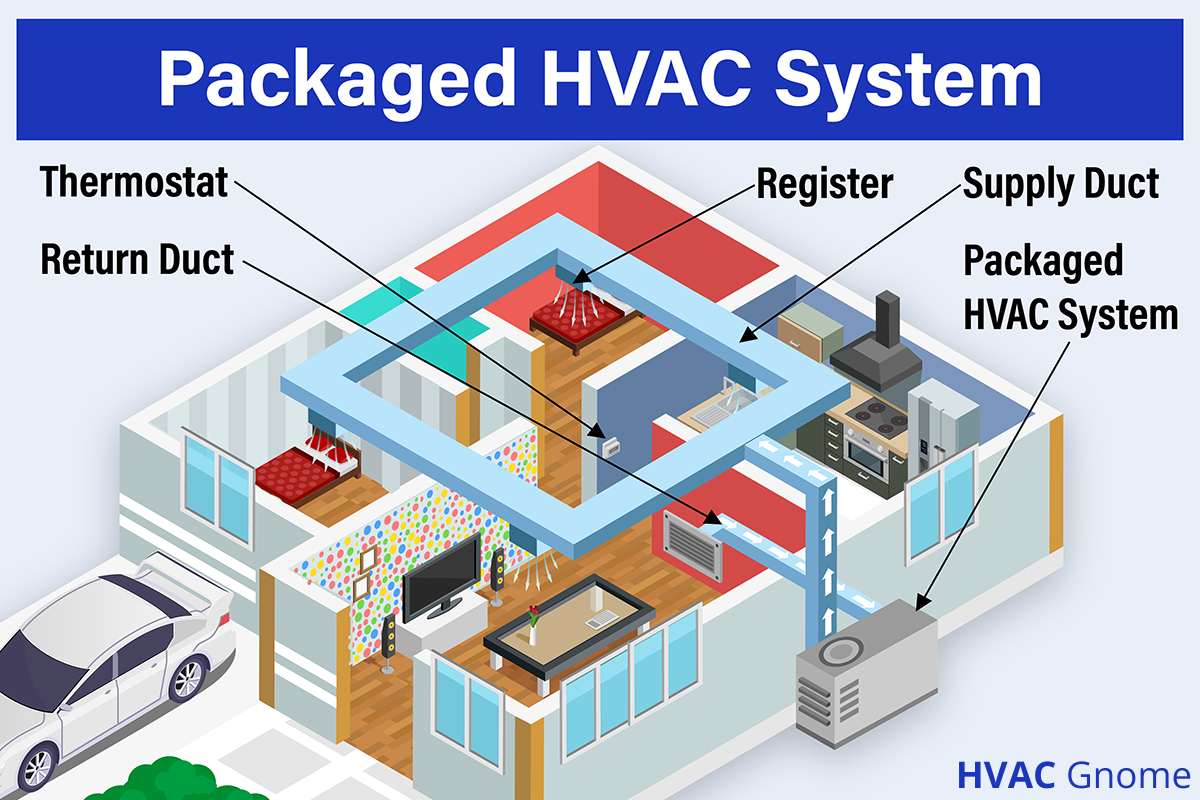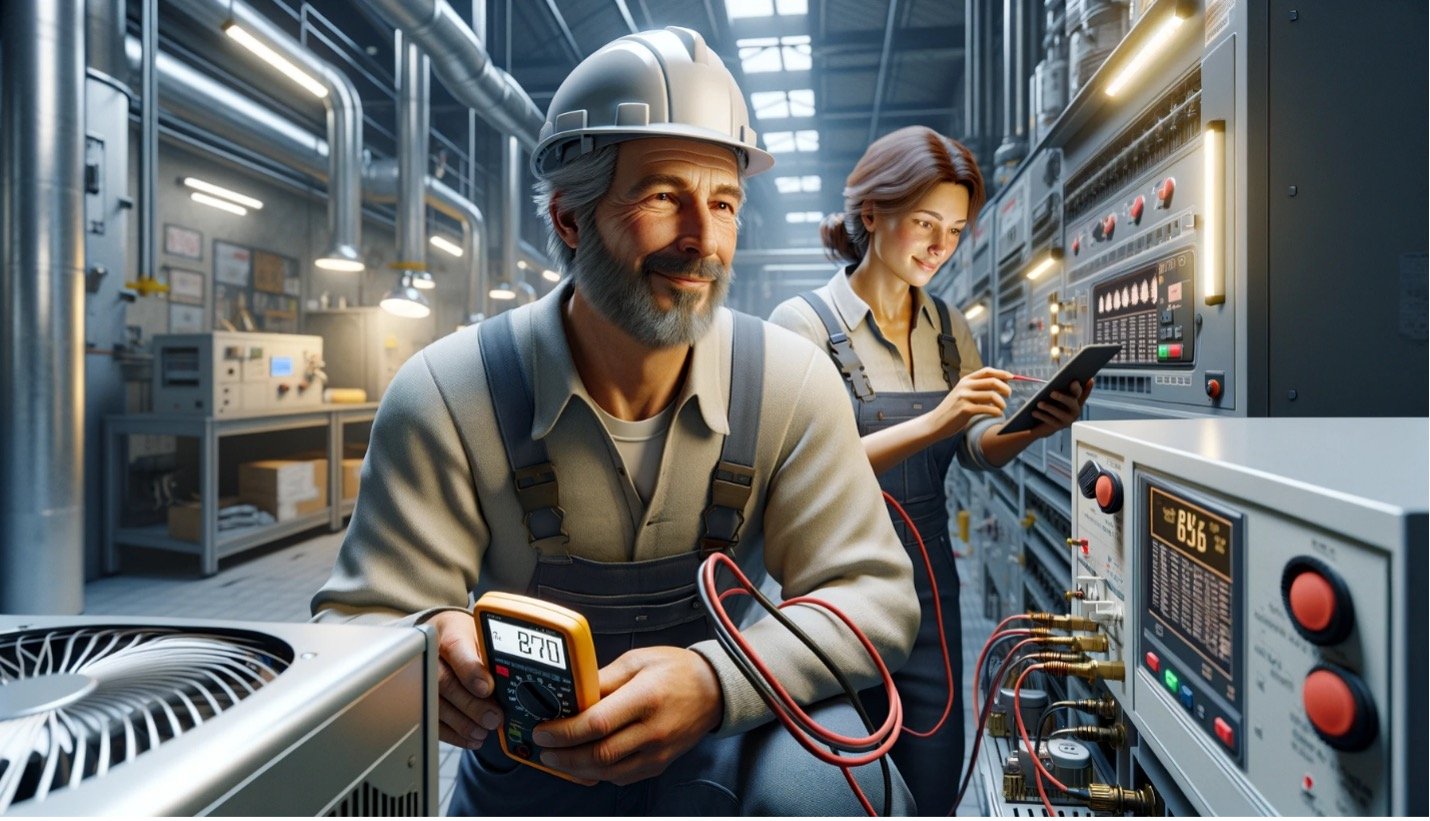Air Conditioning Repair Service to Keep Your Home Great and Comfy
An In-Depth Look at A/c Providers and Their Effect On Power Effectiveness and Price Cost Savings
The role of HVAC solutions in enhancing energy performance and achieving price savings is a lot more crucial than ever, as home owners and companies seek lasting solutions in a progressively eco-conscious world. With technological improvements like smart thermostats and high-efficiency components, the possibility for enhancing system efficiency is huge. Yet, truth influence of these developments depends largely on regular maintenance and positive problem administration. As we check out the complex partnership between HVAC systems and operational prices, including the change towards eco-friendly alternatives, the question emerges: just how can these techniques be successfully executed to maximize both ecological and economic advantages?

Relevance of HVAC Systems
heating and cooling systems are a vital element of modern-day buildings, playing an essential role in maintaining healthy and comfy interior settings. These systems, incorporating home heating, ventilation, and air conditioning, are essential for regulating temperature level, moisture, and air quality, consequently ensuring the well-being of residents. Reliable cooling and heating systems add considerably to producing an optimal interior climate, which is crucial for both residential and business rooms.
In commercial structures, cooling and heating systems are indispensable to supplying a risk-free and efficient setting. By controlling interior climate problems, these systems aid avoid the growth of mold and the spread of air-borne contaminants, therefore guarding the health of staff members and consumers. Furthermore, in household setups, heating and cooling systems improve living conditions by supplying consistent thermal comfort and boosting interior air quality, which is crucial for total health and wellness.
Moreover, the design and upkeep of cooling and heating systems have a direct influence on power consumption and operational expenses. Properly developed and maintained systems can considerably reduce energy usage, leading to lowered energy expenses and a smaller sized carbon impact. The efficiency of these systems therefore plays a crucial function in advertising sustainability and power preservation within structures, highlighting their importance in the modern architectural landscape.
Breakthroughs in HVAC Innovation
Technology in a/c technology is revolutionizing the way buildings take care of indoor climates, ushering in a new era of performance and control. Current advancements have concentrated on optimizing energy usage while improving individual comfort. One remarkable development is the assimilation of clever thermostats, which use expert system to discover occupancy patterns and adjust temperature levels appropriately, minimizing unneeded energy use.
Variable Cooling Agent Circulation (VRF) systems represent one more significant jump onward. These systems enable accurate temperature control in different zones of a structure, boosting convenience and lowering energy waste. VRF technology is especially beneficial for huge industrial spaces, offering flexibility and scalability.
In addition, the development of Web of Points (IoT) gadgets has actually transformed cooling and heating systems right into interconnected networks with the ability of real-time data collection and evaluation. This connection allows predictive maintenance, ensuring systems operate at peak performance and lessening unexpected downtime.
Additionally, developments in products and layout, such as the usage of high-efficiency coils and compressors, have enhanced total system efficiency - Heating Contractor. The adoption of eco-friendly cooling agents also highlights the market's commitment to sustainability
These technical advancements are critical in lowering functional costs and environmental impact, setting new requirements for constructing climate administration.
Cooling And Heating Maintenance and Performance
Ensuring optimal performance of cooling and heating systems prolongs past technological innovations; it also rests on efficient upkeep practices. Routine upkeep is important for maintaining efficiency, minimizing energy consumption, and prolonging the life expectancy of cooling and heating systems. The primary goal is to guarantee that all parts function at their peak potential, thus lessening energy wastefulness and preserving regular indoor comfort degrees.
Regular maintenance tasks, such as cleansing or changing air filters, checking refrigerant levels, and examining ductwork for leakages, are essential for stopping unneeded strain on the system. Dirty or stopped up filters can obstruct air flow, triggering the system to function more challenging and eat more power. Likewise, insufficient refrigerant levels can reduce cooling down performance, resulting in higher functional costs.
In addition, routine inspections by certified professionals can recognize possible concerns prior to they intensify into pricey repair work or system failures. These evaluations typically include checking electrical links, adjusting thermostats, and ensuring the overall honesty of the HVAC system. By addressing small problems early, property owners and services can prevent unanticipated failures and improve power performance.
Cost-efficient HVAC Solutions
For those seeking to get one of the most out of their home heating, ventilation, and air conditioning systems without breaking the financial institution, checking out cost-effective a/c solutions can make a substantial distinction. One prompt measure is to purchase programmable thermostats, which allow individuals to set details temperatures for various times of the day, optimizing power usage and reducing unnecessary intake. By automating temperature level changes, house owners can attain considerable financial savings on energy expenses.
Regular maintenance is an additional important component of economical a/c management. Guaranteeing that filters are cleaned up or replaced frequently, ductwork is sealed, and systems are serviced by experts can prevent costly fixings and boost system durability. Precautionary maintenance not only maintains system effectiveness but likewise assists in avoiding unanticipated failures that can bring about costly emergency situation repair work.
Additionally, retrofitting existing systems with energy-efficient components, such as variable speed motors or high-efficiency compressors, can be a sensible financial investment. These upgrades improve functional effectiveness, lower power use, and can frequently be executed at a fraction of the expense of a full system replacement.
Ecological Impact Reduction
Lowering the environmental impact of A/c systems is essential in today's quest of lasting living. A/c systems are significant contributors to energy usage, accounting for virtually 40% of power click resources use in business structures.
Technical innovations in heating and cooling design and procedure, consisting of the assimilation of clever thermostats and energy-efficient warmth pumps, are critical in lowering carbon impacts. These innovations enable optimized energy use, minimizing waste and boosting total system efficiency. Furthermore, embracing routine upkeep methods makes sure heating and cooling systems operate at peak efficiency, further stopping unnecessary power intake.
Moreover, using environmentally friendly refrigerants is important, as standard cooling agents, like CFCs and HCFCs, have been phased out as a result of their ozone-depleting homes. Modern options, such as hydrofluoroolefins (HFOs), offer lowered ecological dangers, straightening with international environmental procedures. By accepting these sustainable techniques, cooling and heating my company services can play a transformative role in lowering environmental impacts, advertising energy efficiency, and cultivating a more lasting future.
Conclusion

In addition, the design and upkeep of HVAC systems have a direct effect on power consumption and operational prices. Regular upkeep is critical for maintaining performance, reducing energy intake, and extending the life span of Heating and cooling systems. A/c systems are significant contributors to energy consumption, accounting for almost 40% of power use in industrial structures. Furthermore, taking visit this site on routine maintenance practices ensures Cooling and heating systems operate at peak efficiency, further stopping unnecessary power intake.
The shift to ecologically pleasant Cooling and heating systems further promotes and reduces functional costs sustainability. (Heating Contractor)